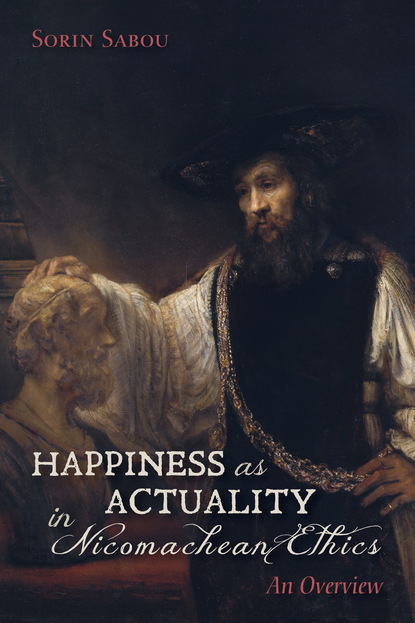
Happiness as Actuality in Nicomachean Ethics скачать fb2
Sorin Sabou - Happiness as Actuality in Nicomachean Ethics краткое содержание
This is a study about the meaning of happiness (εὐδαιμονία) in Aristotle's Nicomachean Ethics (EN). It is argued that εὐδαιμονία in EN means actuality, and it has to be interpreted through the lenses of two metaphors used by Aristotle in EN 1.7 1098a21 and 10.6 1176a30: the «perimeter of good» and the «imprint of happiness.» To explain the meaning of happiness Aristotle first has to delineate the «perimeter of good» of human beings, and he does that with the help of two criteria: the final end [τέλος] and the function of humanity [ἔργον ἀνθρώπου]. These two criteria are metaphysical concepts which describe the «good» as the final metaphysical aim of every person, and the best every person can be. This metaphysical teleological aim is the «actuality of the soul» according with excellence. This is the «perimeter» within which Aristotle enquires about εὐδαιμονία–the good of humans.
Скачать книгу «Happiness as Actuality in Nicomachean Ethics» Sorin Sabou
Чтобы оставить свою оценку и/или комментарий, Вам нужно войти под своей учетной записью или зарегистрироваться




